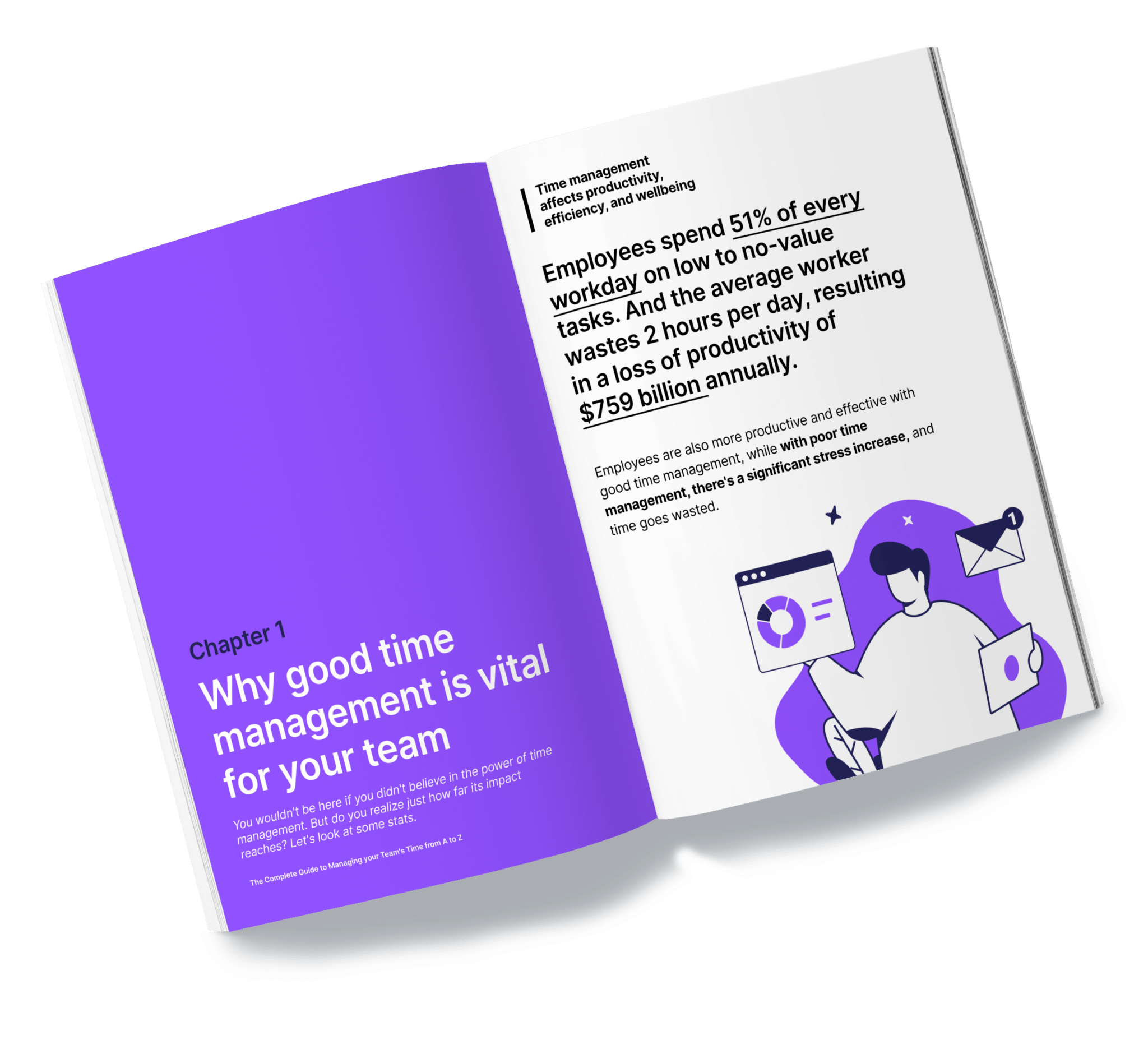Does Music Increase Productivity?
Music evokes a lot of different emotions in everyone, in many different ways. Sadness, excitement, motivation, and focus are some of the main feelings that are grasped when one’s feeling a certain mood. Imagine you’re in a happy mood, you’ll feel an urgent need to hear happy and light music.
There’s also the need to listen to music to improve your productivity most positively. Some people may enjoy absolute silence, others prefer the white noise of office work, while some can’t live without listening to music every single day.

Get your free copy of the eBook and discover top productivity tips for teams and their leaders
But the question remains: does music increase productivity? In this article, you’ll get to see where does it stand the definition of music as a productivity reinforcement. You’ll see which kind of music and genre is more appropriate and which tasks really take advantage of that positive motivation.
Lastly, you’ll keep up with the effects of listening to music while you’re working, along with important answers to some questions you may have about it.

Does music increase productivity?
As quoted in Psychology of Music by Teresa Lesiuk:
“Presenting extraneous environmental stimuli by way of stereo headsets (music and radio) is one way in which work performance has shown improvement.”
Music plays a very important role in your personal and professional life. It has the power to provoke specific feelings and can also change a person’s mood.
Music brings all sorts of stimulation when you’re working. Its influence on your work routine is significant because you can see a positive impact on your productivity, motivation, and performance.
It’s also important to observe the power to reduce anxiety and promote more happy well-being in an employee. There’s no productivity or quality performance without the happy state of your team. And all those factors combined result in goal accomplishment and progress.
Music plays a very important part in the reduction of any stress or anxiety that members of your team might feel in an overwhelmed work routine.
Read our blog to find out how stress affects productivity.

What kind of music increases productivity?
Classical or instrumental music are the two types of music that can help increase your productivity because there are no lyrics and you’re surrounded by clear instruments, your brain is highly stimulated.
That action will feed your productivity and focus on the tasks that were planned for you to do.
Did you know that Spotify is a productivity app? Find the best productivity tools for iPhone in our post.
Does instrumental music develop productivity?
Instrumental music can develop your sense of productivity because you don’t have any lyrics to focus on, just sounds of miscellaneous instruments.
With that, you have the music stimulation behind your ability to focus on everything you need to do.
What are the best tasks to complete while listening to music?
Responding to e-mails, filling reports, and monitoring the progress of certain tasks can be easily completed with some classical or instrumental music behind them.
What’s the best music genre to increase productivity?
Studies have demonstrated that classical music is the best booster of creativity and productivity. “The Mozart Effect” claims that listening to classical music can develop your brain activity, and give you the ability to stay productive and focused.

Effects of listening music while working
- Increases your concentration: Instrumental or classical music helps you concentrate on the tasks at hand;
- Develops your motivation: Listening to music gives you the ability to stay motivated instead of feeling bored on tasks that might seem repetitive;
- Imagination ability: Consuming and embracing this art form can sometimes lead to a peak of creativity for something you didn’t even know you needed;
- Affects your productivity positively: Having a melody and a rhythm, the structure of the music itself can give you the stability you want to be productive;
- Increases your mood: Silence can be excruciating for someone who loves to work with music. Your mood can change instantly when you’re listening to your favorite playlist;
- Receptive to retain more information: While you’re focused on your studies or at work, music makes you more attentive to the reception and storage of information in your brain;
Ofte stillede spørgsmål
Does music increase productivity at work?
Yes, music increases productivity at work. When you’re listening to your favorite music, it naturally develops your brain’s dopamine levels. Once you’re feeling like that, your productivity automatically spikes.
Does music improve productivity while studying?
If you’re trying to study with the help of your favorite playlist, you’re more receptive to retaining the knowledge and enduring long hours with what you’re studying.
Is it better to work in silence or with music?
There are advantages to both cases. Silence can provide a natural focus element, although most of the time, you have to deal with the background noise of a library or of your own home. With music, especially if it’s something you like, you’ll be more prepared to focus on the tasks at hand.
Why do I focus better with background noise?
It’s perfectly normal to focus much better with background noise because it can stimulate the brain and develop your attention span.
If it works for you, noisy places with background noise should be the perfect place for you to work in.
Konklusion
As it was possible to observe through this article, music has a unique and important effect on your professional life. In sum, listening to music increases your productivity.
From actual music to silence or even background noise, a range of possibilities can result in your evolution. You need to analyze what’s best for you, use it and keep improving it until you find the next best thing that works for you.